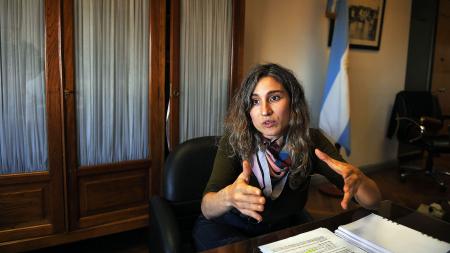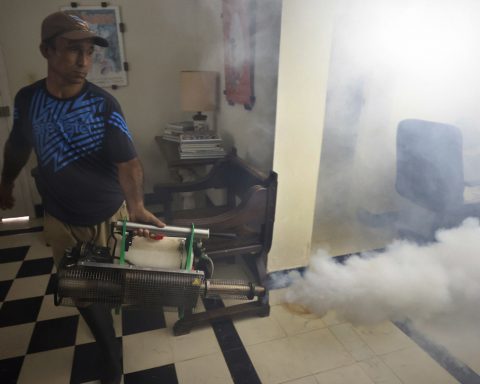The gender gaps deepen for women who are mothers, reflecting a “maternity penalty” that translates into hourly wages being a third lower than for fathers, according to a report by the Ministry of Economy.
This salary difference between fathers and mothers, taking into account the educational level and work experience, widens gender inequalities where the asymmetric distribution of domestic and care tasks plays a preponderant role by taking away time and opportunities for women to train, participate in the labor market, train, rest and carry out other activities.
“This is one of the costs women pay for caring. Not only do they spend more time and often have fewer hours available for paid work, they also earn lower hourly wages. This is not due to his training or his work historywhich are variables contemplated in the investigation, but rather it is related to the lack of free time,” said the head of the National Directorate of Economy, Equality and Gender (DNEIyG), Sol Prieto, in dialogue with Télam.
In this sense, he pointed out that “this has an impact on informal networks” that contribute to consolidating work and professional careers.
“Women often do not have the time to meet after work, go play ball, travel, among other activities, and this negatively impacts their jobs and, therefore, their salaries”he detailed.
“Social stereotypes about maternity and paternity are reinforced: fathers work more because they are the ones who provide for the home, while mothers stay at home taking care of their children”dark sun
According to the report “The cost of caring: gender gaps in the Argentine economy” (1st quarter of 2022) carried out by the DNEIyG, for the first quarter of 2022 the activity rate of women was 1.2% more than a year ago; the female employment rate grew 3% and the unemployment rate for women was 4% lower; In addition, the employment gap decreased 2.2% compared to the same quarter of 2021.
Although these indices improved, the inequalities between men and women persisted and widened in the case of those who have children.
Based on the statistical analysis, there is a “maternity penalty” in the salary of women, from the moment they have children, which was not detected in the salary of men who are fathers.
In the first quarter of 2022, mothers earned 33.7% less per hour than fathers, which means that mothers received a salary one third less than fathers, for reasons other than educational level and experience previous employment.
“This is called the ‘maternity penalty’ and consists of the difference in salary in favor of the parents, after controlling for educational level, work experience and hours worked”Prieto indicated.

The official explained that “it is the first time that an official calculation on maternity penalties has been published. This is one more step in making visible the effect that the unequal care burden has on women and, therefore, allows us to continue promoting policies that contribute to reducing gender gaps in economic matters”.
In this way, Prieto highlighted the advances in terms of policies that seek to reduce gaps in time and caresuch as “the recognition of retirement contributions from Anses, others that improve the employment of paid caregivers, such as (the) Registradas program. And others, promoting the social redistribution of care tasks, such as investment in infrastructure in spaces early childhood, among many policies that this government has been carrying out”.
the cost of caring
According to the report, in the first quarter of 2022, men (40.8%) worked more than eight hours in the main occupation than women (32.5%); and observing these variables for maternity and paternity, the difference widens: a man with children (43.0%) worked more than 11 hours a week in the main occupation than a woman with children (31.9%).
In this sense, they pointed out that this occurs for two reasons: not only because mothers work fewer hours, but also because fathers work longer than mothers.
In this way, “social stereotypes about maternity and paternity are reinforced: fathers work more because they are the ones who provide for the home, while mothers stay at home taking care of their children,” the document maintains.
“This is one of the costs women pay for caring. Not only do they spend more time and often have fewer hours available for paid work, they also earn lower wages per hour”dark sun
Inequality is further widened when the difference between mothers and fathers with children under six years of age is observed, the age at which more care time is required: while they dedicate 44.6 hours a week to paid work, they only dedicate 28.9 hours to paid work, which implies a difference of more than 15 hours per week.
This is directly related to what 80% of children under the age of four spend most of the day, between Monday and Friday, with their mothers (DNEIyG and Unicef 2021).
Along these lines, they highlighted that people who choose to be mothers work fewer hours for pay than other women and than men who choose to be fathers. Conversely, male fathers of young children work longer hours than the average male.

















